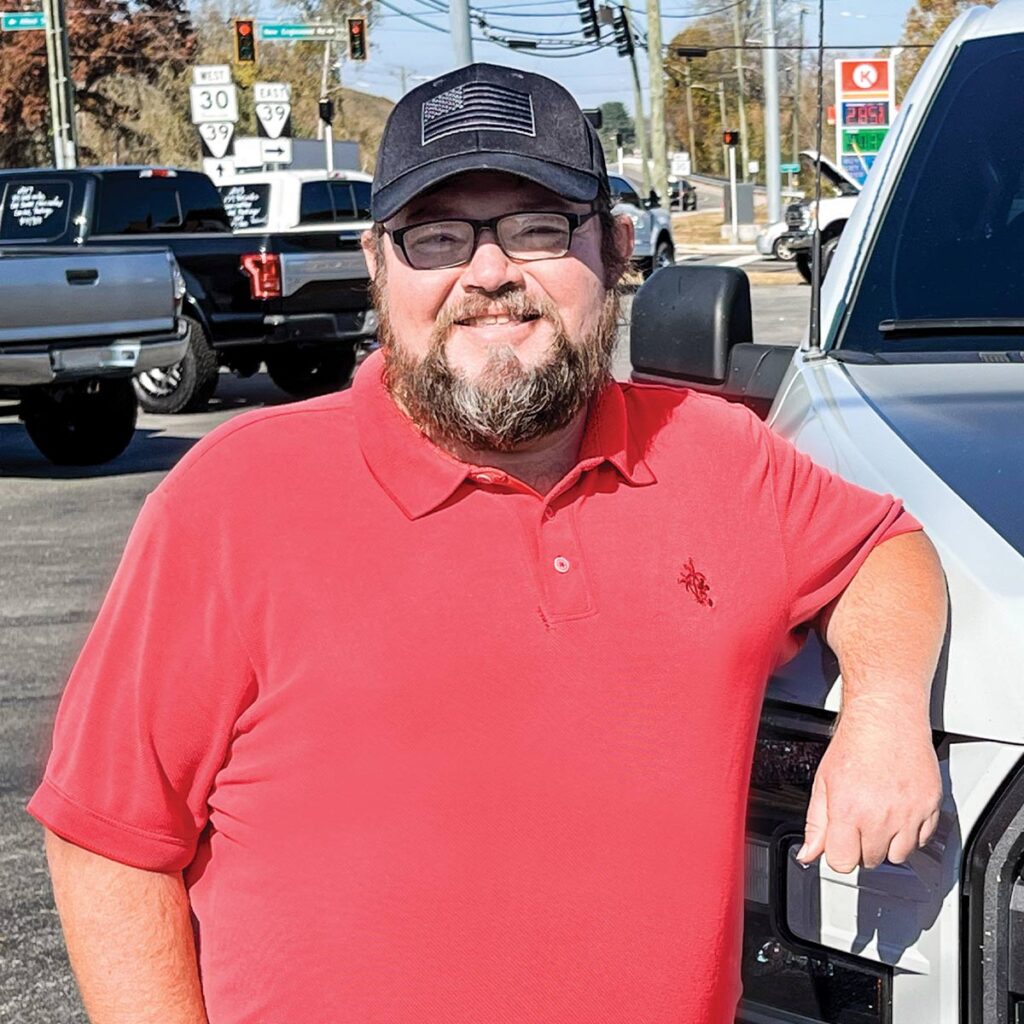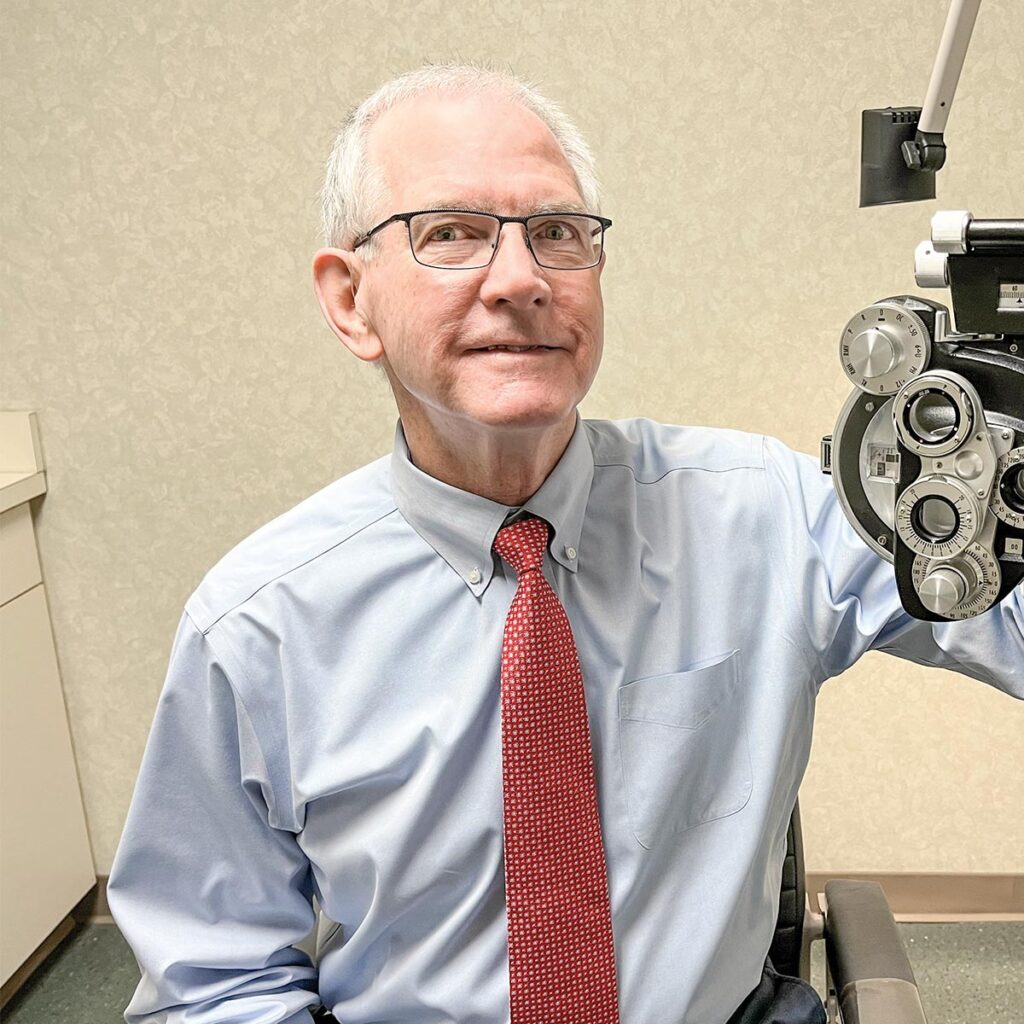Paving the Road to Recovery
Stanley Webb had a proverbial flat tire. In recent years, the salesman at a small Athens, Tennessee car lot had experienced a major heart attack, crippling brain disease, and massive loss of eyesight. Without health insurance, Webb had nowhere to turn for treatment … until he found Southeast Tennessee Project Access.
“I had an appointment with the Meigs County Health Department, and they found my miracle,” Webb said. “Project Access brings doctors together who care and work to keep me alive. The gift they give me is powerful.”
For people in Southeast Tennessee who fall ill, have no access to health insurance, and no place to turn for treatment, Project Access can provide a second chance at life.
Project Access is a nonprofit coordinated-care network of doctors, hospitals, healthcare providers, and community clinics that provides donated healthcare for residents in low-income jobs with no access to health insurance. The program also provides care to people who don’t qualify for federal or state programs such as TennCare and Medicaid but cannot obtain insurance.
“The greatest resource in any community is the people,” said Dr. James Haynes, president of the Medical Foundation of Chattanooga.





“Being able to provide care to those who need it is really important. That is where Project Access comes in.”
Since its inception in 2004, Project Access has made healthcare available to more than 25,000 low-income, uninsured residents of Hamilton County.
More than $224.7 million in free healthcare has been donated by more than 1,160 volunteer physicians and providers through the program. The program is coordinated through the Medical Foundation of Chattanooga in partnership with the Chattanooga-Hamilton County Medical Society.
For Webb, Project Access paired his healthcare needs with specialists in cardiology, nephrology, and ophthalmology. Webb credits specialists, like ophthalmologist Dr. Steven Thomas, for treating his healthcare needs not only directly but together with other doctors.
“My doctors work really well together to keep me going,” Webb said.
“They check me out, do blood work, and compare notes to make sure everything is good. It is really amazing to experience.”
If procedures or other services are needed, Project Access coordinates with hospitals or other service providers so the patient’s health can be restored.
“Doctors and hospitals have always provided charity care, but it was done in a sometimes informal manner,” said Rae Bond, CEO of the Medical Foundation and Society. “Project Access makes it easy for hospitals and physicians to participate while easing the navigation of a sometimes complicated healthcare system.”
To be eligible for Project Access, patients must have a current medical condition, be uninsured, be ineligible for health insurance and have an income 150% below the poverty level.
Before the program started, patients would often have to visit their primary clinic until the condition was bad enough that they would have to access specialty care through a visit to the emergency room. Through a coordinated effort with other charity partners, patients are referred to Project Access before those dire cases are too serious to treat.
In 2022, Project Access collaborated with the Bradley County Medical Society to expand beyond Hamilton County and treat patients from surrounding counties.
“You can go 50 miles in any direction outside of Chattanooga, and you’re in very rural areas without healthcare resources,” Dr. Haynes said. “Some of the poorest counties in Tennessee are near Chattanooga, so extending that care is very important.”
For Webb, the results have been life changing. Prior to Project Access, his vision was 20/400, classified as severe vision loss. Working on the car lot, Webb had to rely on his other senses to recognize which vehicle he was selling based on the sound of the engine.



After treatment, his vision was restored to 20/30.
“This program speaks to the heart of compassion that you see daily in the medical community,” Bond said. “We are able to provide more time for a husband to have with a wife, more time for a family, more time to have meaningful experiences.”
Through Project Access, the healthcare community comes together to give the invaluable gift of a second chance for those most in need.
Improving Community Health in Southeast Tennessee
The Medical Society was founded in 1883 to promote sound medical practice and improve community health. The Medical Foundation was created in 1986 to expand that mission and provide a platform for physicians’ charitable endeavors.
Today, these organizations work on a variety of fronts to improve public health. They help lead community collaboration, provide access to care through Project Access, encourage students to consider healthcare careers, and support physicians experiencing stress and burnout.
Southeast Tennessee Project Access
- Coordinated more than $224.7 million of donated healthcare services since 2004
- Care provided by more than 1,160 physicians annually with area hospitals and health centers
- Hospital partnerships with CHI Memorial, Erlanger, Parkridge, and Tennova Cleveland
- Coordinates specialty care service for 25 community health centers
- More than 25,000 patients from 32 counties have received care or have been directed to services
Youth Leadership & Educational Programs
- The Future Docs Youth Leadership Forum on Medicine was established in 2006 to encourage promising high school students to consider careers in medicine.
- The Future Docs Medical Explorations program is an immersion experience for college students considering medical careers.
- More than 550 students have participated in these programs since 2006.
- Leadership graduates are now practicing medicine or in medical schools and residencies around the country.
Lifebridge Physician Wellness Program
- Established in 2018, LifeBridge is designed to help address physician burnout.
- Increases physician resilience through evidence-based programming and education
- Provides easy, confidential counseling resources for physicians at risk for burnout and workplace stress
- Offers access to the Physician Well-Being Index tool which allows physicians to self-assess their status and access resources

